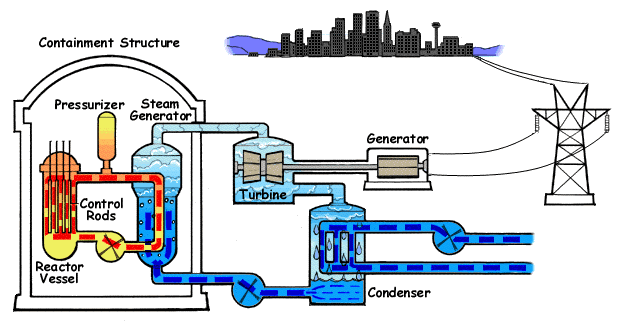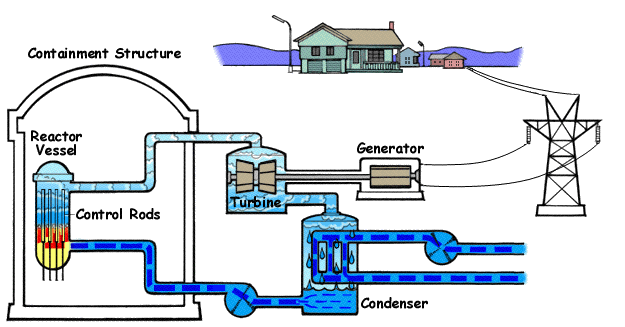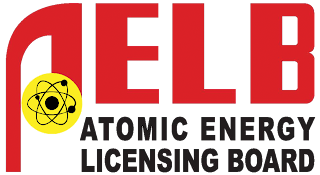The only method in use today is through nuclear fission, though other methods might one day include nuclear fusion and radioactive decay.
All utility-scale reactor heat water to produce steam, which is then converted into mechanical work for the purpose of generating electricity or propulsion.
In 2007, 14% of the world's electricity came from nuclear power.

Pressurized Water Reactor

Boiling Water Reactor
Advantages (Pros):
1.Nuclear power plants are more efficient than ever before. New technology has made them more reliable (they break down less often) and safer.
2.Reduce greenhouse gas emissions. This is a contentious issue. Proponents of nuclear power argue that, as no coal or fossil fuels are burnt, no carbon dioxide is released into the air.
3.Although the initial cost of building nuclear plants is high, the running costs are relatively low.
4.One reason the costs are low is that nuclear plants need only a small amount of uranium to produce a lot of energy. In fact, if the cost of uranium doubled, costs would only be increased by 7%. 1 truck of uranium produces as much energy as 1000 trucks of coal!
5.Reduces dependence on foreign oils and natural gas (like biofuels). America, for instance, imports a lot of oil and natural gas from other countries. The price of these products is volatile, and change very quickly. If the price increases quickly, consumers have to pay more for their electricity (which they may not be able to afford).
6.Nuclear wastes can be safely stored underground
We (Malaysia) start develop and research in this field 50+ years back, together with South Korea.
BUT, we are far left behind by them. In every sectors, eg; economic.
Why? Because we spend more money on producing energy using common technique, on the other hand, South Korea had more money to develop their country.
*short intro from me
What do you guys think??


 Jun 19 2009, 06:18 AM, updated 17y ago
Jun 19 2009, 06:18 AM, updated 17y ago
 Quote
Quote







 0.0474sec
0.0474sec
 0.49
0.49
 7 queries
7 queries
 GZIP Disabled
GZIP Disabled